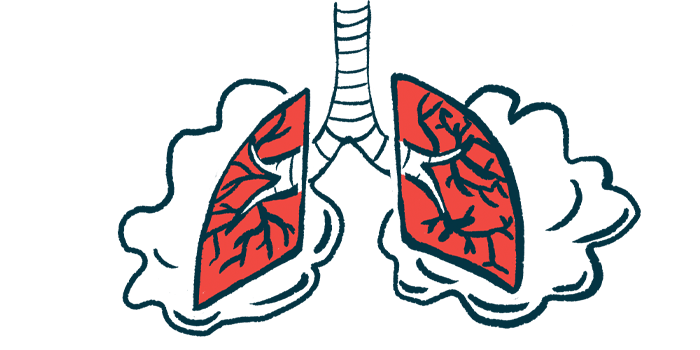Blocking Enzymes of 2 Proteins Show Potential to Treat IPF in Study
Written by |

Two protein kinases, called DCLK1 and STK33, may serve as candidates for a molecular targeted therapy of idiopathic pulmonary fibrosis (IPF), a study reported.
Current anti-fibrotic therapies for IPF have been shown to slow disease progression. One such approved treatment, Ofev (nintedanib), works by blocking the tyrosine kinase. But researchers believe there is room for more — and possibly more effective — such inhibitors.
“Other kinase inhibitors may also have the potential to inhibit the progression of IPF,” they wrote.
The study, “Identification of targetable kinases in idiopathic pulmonary fibrosis,” was published in the journal Respiratory Research by a team of researchers from Okayama University in Japan.
Kinases are enzymes that participate in many cell processes. They add chemicals called phosphates to other molecules, causing them to become either active or inactive. In the complete set of the human DNA, there are 518 genes providing instructions for making kinases.
While kinases are important for cells to work properly, they also may contribute to inflammation — a hallmark of IPF. Knowing which of these 518 genes is turned “on” or “off” allows researchers to understand which of the many kinases in the body may be a potential treatment target.
Similarities are known to exist in the way IPF and non-small cell lung cancer develop. Therefore, researchers also looked at a selection of 46 cancer-related genes.
“Currently, there are multiple clinically approved kinase inhibitors for a wide range of diseases, including fibrosis and malignant diseases,” the researchers wrote.
Their study included five IPF patients with a median age of 57. Two had undergone a lung transplant and the other three had surgery to remove a portion of their lungs due to non-small cell lung cancer. In total, 13 lung tissue samples were collected from this group.
Four patients with this lung cancer and without IPF (median age of 64), who had cancer removal surgery, served as controls. A total of eight lung tissue samples were collected from these people.
To tell which genes were turned “on” or “off,” researchers looked at messenger RNA — a type of molecule produced from a gene’s DNA that serves as a template for protein production.
As disease severity may affect gene activity, researchers divided IPF patients into two groups based on their Ashcroft score, which measures the severity of lung fibrosis, or tissue scarring. Patients with a score lower than six were considered to have normal to moderate fibrosis; those with a score of six or higher were considered to have severe fibrosis.
When researchers compared control patient samples with those showing normal to moderate or severe fibrosis, they found that samples with severe fibrosis had a unique gene signature that differed widely from that of the other two groups.
“These results suggest that the gene expression [activity] signatures are altered with the progression of fibrosis,” the researchers wrote.
Next, they looked at which genes in IPF samples had an activity that was at least twice that of control samples. Three genes met this criterion: DCLK1, STK33, and CDK1. However, high heterogeneity, or variability, was evident among the samples.
To check whether these changes also occurred at the protein level, researchers observed lung tissue samples under a microscope. Using antibodies that bind specifically to each of the proteins, they were able to see that DCLK1 and PDK4 proteins in IPF patients were mainly expressed in the epithelial and smooth muscle cells lining scarred tissue. PDK4 was also found in macrophages, a type of immune cell.
In lung tissue from controls, DCLK1 and PDK4 proteins were found in the epithelial layer lining the airways.
In IPF patients, STK33 was also mainly found in epithelial cells lining fibrotic lesions in the lungs. In control patients, this protein was mostly found in epithelial cells of the airways.
“DCLK1 and STK33 may serve as potential candidates for molecular targeted therapy of IPF,” the researchers wrote, adding that “additional large-scale studies are warranted to develop personalized therapies for patients with IPF.”







